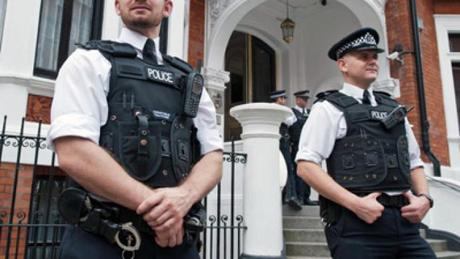UK Budget Cuts Raise Terror Attack Risk, ex-Security Chief Warns

Britain will be more vulnerable to the kind of attacks launched by the Islamic State group in Paris if planned police budget cuts go ahead, the country's former counter-terrorism chief warned on Thursday.
Finance minister George Osborne is set to announce departmental budget cuts in a spending review next week, and the interior ministry, which oversees policing, is in line for what are expected to be sizable reductions.
"It will make Britain more vulnerable to terrorism. It will damage the police's ability to counter terrorism if neighborhood policing is cut," said Robert Quick, head of counter-terrorism between 2008 and 2009, Britain's Guardian newspaper reported.
"It will lead to a loss of intelligence, a loss of confidence and trust."
Other government departments have already agreed spending reductions, but negotiations with the interior ministry are still ongoing, highlighting significant pushback from officials and lawmakers after last week's attacks in Paris.
Opposition leader Jeremy Corbyn, head of the Labor party, called on Prime Minister David Cameron to limit cuts to the police budget to five percent, down from an expected 25 percent.
The number of police community support officers (PCSOs), who have more limited powers than regular officers, is also set to be reduced as part of the cuts.
"I think it would be a disaster, absolute disaster. In the end it's intelligence from the community that will lead us to stop attacks happening," former Metropolitan Police commissioner Ian Blair told the BBC on Monday.
"It is those patrolling PCSOs who get to know the communities who work with the communities, this is policing with communities not at communities."
On Tuesday current Metropolitan Police Commissioner Bernard Hogan-Howe, who oversees London policing, said he was considering boosting the number of armed police officers patrolling the capital's streets.
He expects to have to cut 5,000 officers from his overall force of 32,000 to cope with Osborne's austerity cuts next week.
"I think what Paris showed us, with so many attackers with so many scenes, moving around at speed ... we need to have a mobile reserve. And I've got a good idea how that can be achieved," he told LBC Radio.
Britain has beefed up the number of police patrolling ports, transport hubs and other busy public spaces after gun and bomb attacks killed 129 people in Paris on Friday.
Cuts in police numbers in France under former president Nicolas Sarkozy have come under criticism.



